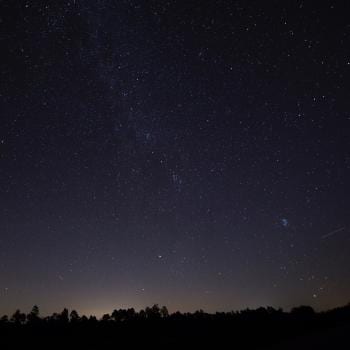I child from our congregation recently noted, “To the aliens, we are aliens.” This child was speaking of extraterrestrials, but their words seemed apropos to these days of government-sanctioned race baiting and child separation. I think of myself as normal. After all, most days my life goes on effortlessly, as one of those often described as privileged, law-abiding, and socially responsible. I’m a citizen of the USA. This is my home I belong here. No one looks at me as an outsider to questions my right to be where I am, whether in town or country. I don’t have to worry about people not understanding me when I speak. I can stand in the place where I am – comfortable and at home.
And, yet to the alien, I am an alien, to the other, I am the other. I’m different and I don’t really belong in their world.
We tend to universalize our experiences when, in fact, all our experiences are finite, relative, timebound, and reflect a unique and limited perspective. The Sufi mystic Rumi was right when he penned the words, “there must be a hundred ways to kneel and kiss the ground.” Rumi had a personal and intimate experience of God as his deepest reality. Yet, he also recognized that the Infinite is intimate and having personal relationship with God is local before its universal.
We can apprehend the truth and recognize common facts. We must also recognize that truth and facts are always interpreted. This truth was evident to me as I reviewed accounts of the Mueller testimony on Fox News’ “Hannity.” It was as if the host and I had experienced two separate realities and two different speeches. While I believe my listening was more accurate than Hannity’s, it amazed me how radically different interpretations can be.
We aspire toward fullness of experience but humbly recognize that finitude and perspective apply to our deepest experiences. We have, as the early Christian teacher Paul says, our spiritual treasures in earthen vessels to remind us that our doctrines and beliefs are partial while God is ultimate. Our familiar doctrines and practices are alien to those from other faith communities, including Christian communities from the USA not to mention the majority or developed world.
Rick Steves and other spiritual pilgrims have spoken of the ethics and spirituality of travel. Being an alien, a stranger in a strange land, liberates us from the parochialisms of Central Pennsylvania, Cape Cod, inner city Atlanta, or West Virginia, and opens our horizons to the experience of being an alien in need of the assistance of others. We don’t know the customs, language, religion, or laws. We are dependent on the kindness of others. We are the aliens, subject to the judgments and laws of others.
In the spirit of Deuteronomy 26:5, a “wandering Aramean was my father,” we are all the children of pilgrims and wanderers, by choice, necessity, or coercion. To someone, we are and will always be aliens! To remember this is to free ourselves from the cages of demagogic rantings and fear of the other, as well as to awaken us to a wider world where all are aliens and none are strangers. It may influence our behavior toward the aliens we encounter but more importantly it will deliver us from citizen-exceptionalism, racist ranting, and unprovoked anxieties. It will cleanse the doors of perception so that in the alien, we see our own alien identity, and discover common ground as aliens whose lives can touch each other with grace.
++++
Bruce Epperly is a Cape Cod pastor, professor, and author of over fifty books including “One World: The Lord’s Prayer from a Process Perspective,” “Ruth and Esther: Women of Agency and Adventure,” and “Become Fire: Guideposts for Interspiritual Pilgrims.”













